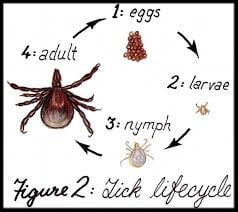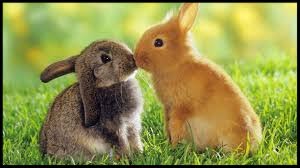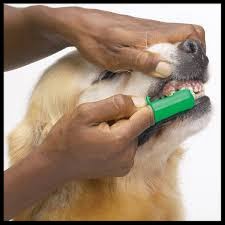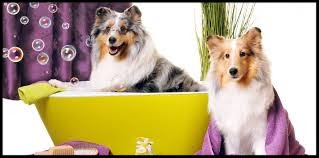Keeping you informed
Newsletter April 2018

Pet of the Month – Loki
Loki is a gorgeous 5 month old Bernese Mountain Dog. Unfortunately, Loki has not had the best start to life. Life was going well up until a month ago when Loki started experiencing gastrointestinal symptoms. He was very lethargic and had diarrhoea. Poor Loki had to spend some time at Turramurra Vet Hospital where he received fluids, gastrointestinal care and further diagnostics. After further tests and a consultation with an internal medicine specialist vet, Loki was diagnosed with food intolerance. He will now be on a special diet to avoid any future flare ups. Like with people, dogs can have intolerance and allergies to particular ingredients in their food, but while as people we often suspect artificial additives or grains as the culprit, for our canine friends, it is more commonly an allergy or intolerance to the meat source. If your dog (or cat) is off their food, vomiting, lethargic or has diarrhoea, don’t assume it is an allergy or intolerance (as there can be many causes). Please contact us on 9988 0198 for a health check so we can get your pal back on track. We wish Loki well.
Larval Ticks

At this time of year, while we still see Adult Paralysis Ticks, the larval stage is what we see causing the most problems in our pets. Larval ticks (also commonly known as grass ticks) are the larval stage of the Paralysis Tick. While they can cause paralysis in some cases (tiny animals, multiple ticks, animals with already compromised health), they are more likely to cause extreme itching and irritation. Larval ticks are so tiny that they are often not seen, but felt as tiny bumps on or under the skin. As they are so small, they often can’t be physically removed and the best way is with a product called Frontline Spray which can be purchased and applied at Turramurra Vet. However, for those animals that are already itchy and distressed, a consult is recommended for your pet to receive medication to relieve the itchiness. You can always speak to one of our knowledgeable nurses for more information.
Did you Know? There are many benefits to speying or neutering your bunny.
 Firstly, a desexed bunny can live a longer, healthier life as the risk of cancer and urinary tract infections are greatly reduced. In fact, 4 out of 5 female rabbits develop uterine cancer by the age of 6 if not desexed. Desexed bunnies are:
Firstly, a desexed bunny can live a longer, healthier life as the risk of cancer and urinary tract infections are greatly reduced. In fact, 4 out of 5 female rabbits develop uterine cancer by the age of 6 if not desexed. Desexed bunnies are:
- Less destructive (as digging and nesting behaviours related to mating can cause destruction).
- Easier to litter train and more reliable with using the litter tray (or a particular spot).
- Calmer and less likely to show aggressive or possessive behaviours.
- Able to have a friend.
Rabbits love bunny companionship and flourish in the presence of another bun. Many undesexed bunnies won’t tolerate a friend of the same gender and when put with a bunny of the same gender, baby bunnies are quickly the result. We offer desexing of both male and female bunnies which is recommended from 6 months of age. For more information please feel free to contact us on 9988 0198, or drop in any time to enquire.
Did you know? You can brush your pet’s teeth!
 Tooth brushing is the ‘gold standard’ method of keeping your pet’s teeth clean and should be done daily for best results. Our pets need to be trained to tolerate having their teeth brushed, so the first step is to work with your pet and try to make it fun for both of you!
Tooth brushing is the ‘gold standard’ method of keeping your pet’s teeth clean and should be done daily for best results. Our pets need to be trained to tolerate having their teeth brushed, so the first step is to work with your pet and try to make it fun for both of you!
- Begin slowly! The initial sessions should be brief and well rewarded. If your pet is highly motivated by food, try just before dinner with the meal acting as the reward.
- Use a lot of love and praise and start by handling your pet’s muzzle and lips. Soon you should be able to rub the teeth and gums with your finger. You can put a few drops of water, tuna juice or pet toothpaste on your finger to entice your pet.
- Once your pet is comfortable with this, use an old sockette or pantyhose wrapped around your finger and flavoured as above, to gently rub the teeth.
- Finally, use a soft toothbrush to brush the teeth. We find a finger brush (pictured) much easier to use and better tolerated than a larger handle brush, but either is fine.
- Combining the brushing with using a pet toothpaste helps to improve your impact, but remember – it’s the mechanical action of the brushing that is the most important thing!
- Brush the teeth in an oval pattern, making sure to get right up to the gumline where the majority of plaque is. Start at the front of the mouth and work backwards – pets are often much more accepting of this.
By following a consistent program of home-care, you will greatly improve your pet’s dental health. This will mean healthier teeth, and a happier, healthier pet.
Glam ‘N’ Go Grooming is booking up fast! Secure your spot today!
 Our groomers, Dave and Selena are available on site every Tuesday, Wednesday and Thursday. Call 9988 0198 today for more information and to book.
Our groomers, Dave and Selena are available on site every Tuesday, Wednesday and Thursday. Call 9988 0198 today for more information and to book.

